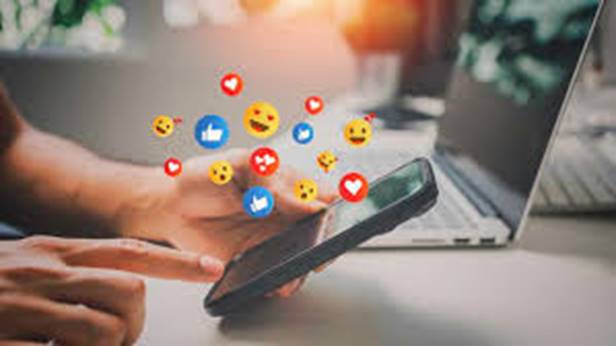
Image credit Forbes
The Influence of Social Media on Language and Communication
Social media has undoubtedly revolutionized the way we communicate and connect with others. Platforms like Facebook, Twitter, and Instagram have become integral parts of our daily lives, allowing us to share thoughts, experiences, and emotions with just a few taps on our screens. However, this digital transformation has also had a significant impact on language and communication. In this blog post, we will explore the various ways in which social media has influenced our language and communication patterns.
The Rise of Abbreviations and Acronyms
One of the most noticeable effects of social media on language is the proliferation of abbreviations and acronyms. With the character limits imposed by platforms like Twitter, users have developed innovative ways to convey their thoughts concisely. Common abbreviations such as "LOL" (laugh out loud), "OMG" (oh my god), and "BRB" (be right back) have become ubiquitous in online conversations. These abbreviations not only save time and space but also create a sense of camaraderie among users who understand the shorthand language of social media.
The Emergence of Emoticons and Emoji
Another significant development in online communication is the rise of emoticons and emojis. These visual representations of emotions and expressions add depth and nuance to digital conversations. Through the clever use of symbols like :) or <3, users can convey emotions that might otherwise be lost in the absence of facial expressions or tone of voice. Emoticons and emojis have become an integral part of online communication, allowing users to express humor, sarcasm, sadness, or love in a concise and visually appealing manner.
The Evolution of Hashtags
Hashtags, initially popularized by Twitter, have become a powerful tool for organizing and categorizing content on social media platforms. They serve as a way to connect people with similar interests and allow for easy searchability of specific topics. Hashtags have not only influenced the way we communicate but have also impacted language itself. Phrases like #ThrowbackThursday, #FOMO (fear of missing out), and #OOTD (outfit of the day) have become commonplace in our everyday conversations, blurring the lines between online and offline communication.
The Influence on Spelling and Grammar
Social media has undoubtedly had an impact on spelling and grammar, with some arguing that it has led to a decline in language standards. The fast-paced nature of online communication often leads to the omission of vowels or the use of shorthand spellings. For example, "u" instead of "you" or "2" instead of "to." While this brevity may be acceptable in informal conversations on social media, it can have a negative impact on writing skills and language proficiency if carried over into other contexts.
On the other hand, social media has also given rise to a new form of language creativity. Users often play with words, inventing new slang, and creating memes that become viral sensations. This linguistic innovation is a testament to the adaptability and dynamism of language, constantly evolving to meet the needs and preferences of its users.
The Impact on Communication Styles
Social media has not only influenced the way we write and express ourselves but has also impacted our communication styles. The immediacy and accessibility of online platforms have led to a shift towards more informal and casual communication. People feel more comfortable sharing personal experiences, opinions, and emotions online, often without the same filters they would employ in face-to-face conversations. This informality has its advantages, fostering a sense of authenticity and connection among users. However, it can also lead to misunderstandings, as the absence of non-verbal cues makes it challenging to interpret the intended tone or meaning behind a message.
The Globalization of Language
One of the most significant impacts of social media on language and communication is the globalization of language. With platforms connecting people from different countries and cultures, language barriers are often overcome through a common lingua franca, usually English. English has become the de facto language of the internet, enabling communication and collaboration across borders. However, this dominance of English has led to concerns about the preservation and diversity of other languages. It is essential to recognize and celebrate linguistic diversity while embracing the benefits of a globally connected world.
Social media has undeniably transformed the way we communicate and has had a profound influence on language. From the rise of abbreviations and acronyms to the emergence of emoticons and emojis, social media has shaped our communication patterns in unprecedented ways. Hashtags have become part of our everyday vocabulary, blurring the lines between online and offline communication. While social media has impacted spelling and grammar, it has also sparked language creativity and innovation. However, it is crucial to navigate the informal nature of online communication with caution, as it can lead to misunderstandings and misinterpretations. Ultimately, as language continues to evolve, we must strike a balance between embracing the benefits of social media while preserving linguistic diversity and richness. - Words Triva

